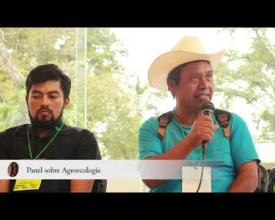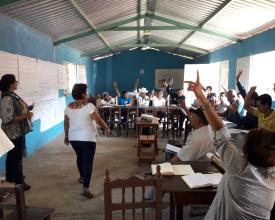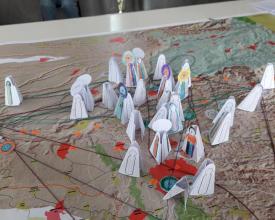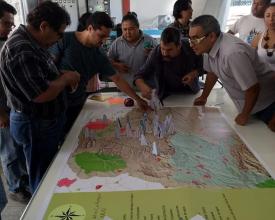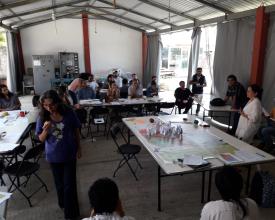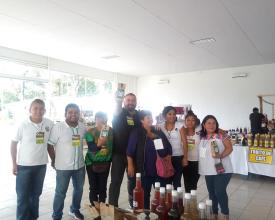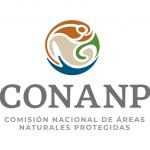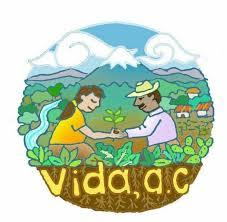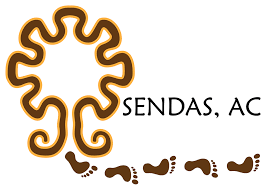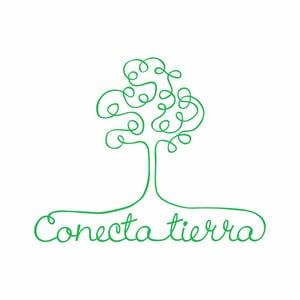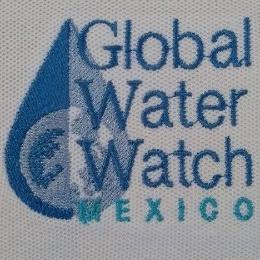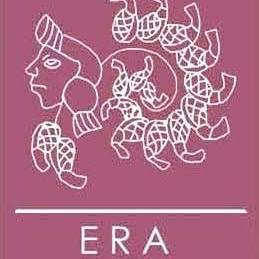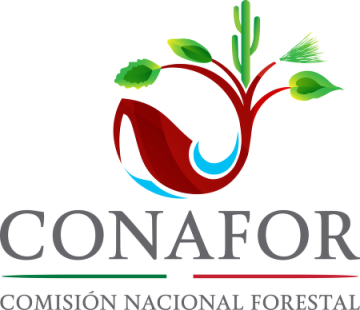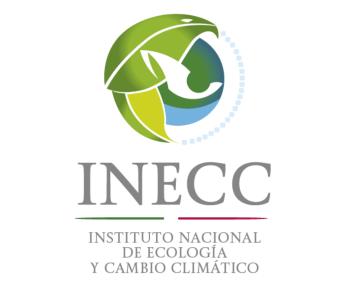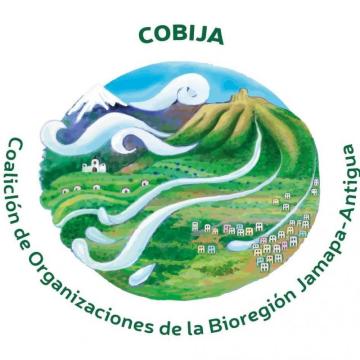
A grassroot initiative to strengthen the sustainable management of natural resources and their ecosystem services
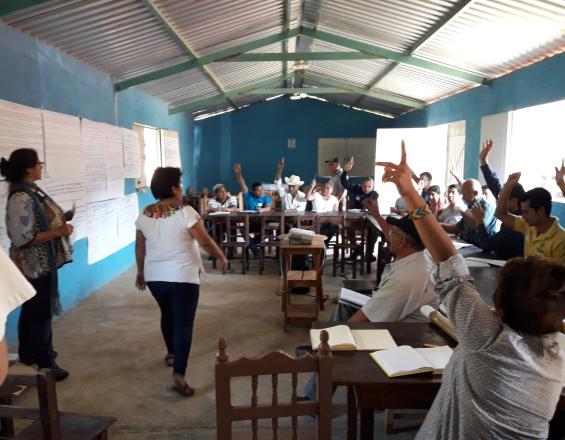
The Coalition of Organizations of the Jamapa-Antigua Bioregion (COBIJA from its Spanish acronym) is an initiative of seven grassroots organizations holding, altogether, great experience in community work and sustainable management of natural resources. The work carried out by COBIJA has a watershed approach based on a regional initiative for integrated land use management (https://panorama.solutions/en/solution/dynamic-tool-integrated-land-use-and-water-management), through which they support local ways of life, and conservation of resources. The permanent presence and support of COBIJA to the various communities of the region has strengthened their social and productive processes, increasing their ability to better use ecosystem services to adapt in the face of environmental and social changes.
Context
Challenges addressed
Among the main challenges are, 1) the sustainability of both COBIJA and the CSOs; for this, they must 2) develop collective proposals with community groups for integral management, including production, sales, distribution, and services; 3) create joint marketing strategies at COBIJA level; 4) find more permanent funding sources; and finally, 5) develop strategies to prioritize participation in certain processes over others in order to not be worn out as an organization.
Location
Process
Summary of the process
Building Block 1 works as a scenario, at the landscape level, for the COBIJA Coalition to focus its efforts for the achievement of common goals on a common region and, thereby, to develop further the actions that have been carried out individually, by every grassroots organization with the local communities. Building Block 2 enters here by highligting the relevance of involving people´s views and concerns in the planning and implementation activities, while providing training and development of capacities to improve the sustainability of the local productive activities, mainly coffee and honey. Building Block 3 strengthens the whole process by ensuring that the internal goverance of COBIJA is based on camaradery, understanding and trust.
Building Blocks
Working in a common landscape to create synergies in the use of ecosystem services
Sharing a same ecological and productive landscape has been pivotal for the development of COBIJA´s leadership in the region, since a common landscape stands for the development of common goals within the Coalition. Having started with the shared struggle against phyto-diseases (e.g. "coffee rust") in the coffee plantations of the Jamapa-Antigua region, the Coalition is still working with small coffee producers, along with beekepers and honey producers. Support goes to the sustainable use of the surrounding ecosystems, including water and land management at the local and landscape levels, to maintain the provision of ecosystem services and the productive activities related to them.
By working for a common landscape, the grassroots organizations have been able to focus their efforts, to share their experiences, and to gain access to more funding to solve the various social and environmental issues in the region.
Enabling factors
- A network of grassroots organizations with sufficient experience so that they can hold a shared vision and leadership in order to mentor local producers and other stakeholders,
- A shared landscape and territory: all organizations are in the same region and the same watershed;
- Counting with financial resources and institutional support from a larger project that underpinned the work of the coalition.
Lesson learned
It has been very important to develop a shared identity for the various member organizations: "Coalición COBIJA" has allowed them to have a greater projection before local and federal authorities, as well as to be recognized as an undisputed spokesperson for the interests of the local communities. More recently, the coalition has become an important reference point, advocating local people´s interest at a level of regional decisions and public policies.
Working with the people and for the people
In the previous building block, the importance of working on and for a common land and taking on common problems was mentioned. For COBIJA members, the common goal is furthermore to do a job with people and for people, promoting social change, strengthening the ways of life of the peasants, and strengthening the sustainable management of key resources such as water and soil. The approach is to generate change by working with the people, for instance to maintain processes for the sustainability of productive projects, or to develop capacities for food security, among others.
Enabling factors
- Using existing levels of organization within communities, producers, and local authorities in order to build initiatives, e.g. Ejido assemblies, fishing cooperatives, rural production units, etc.
- A strong shared sense of identity and belonging among producers, communities and local authorities;
- Thanks to the organization's network and the COBIJA Coalition, there has been a greater impact in the workshops in terms of presenting information and results to the producers and making an effective translation of the diagnoses to reality in the field.
Lesson learned
The work experience with COBIJA has been relevant for people who do not have a network of organizations that fulfill the role of interlocutors and process accompaniers. There was a void of citizen voice which is being covered as the work of the Coalition progresses.
Given the novelty of the Coalition's work experience with the communities, it has been necessary to create an agile communication strategy with the people.
A shared sense of identity and belonging within the Coalition
The collective work developed within the Coalition has favorably impacted each of the CSOs that comprise it. The permanent opportunity to exchange experiences, consult each other for technical aspects, logistics, and to seek funding together, has made it hard for the member organizations to imagine work without the Coalition. Without contributing to the management of the territory, many organizations envision that this management would be partial and that the enriching exchange that has led them to be recognized as a key player in the region would possibly not exist. A key aspect of the collective work has been the human aspect, in which the members have found camaraderie, laughter and affection.
Enabling factors
- A network of actors with territory knowledge that supports integrated management and constant accompaniment of producers;
- Openness and trust within the Coalition; independent from levels of knowledge and expertise, all work equally because they have a common goal.
Lesson learned
- The work within the Coalition has strengthened the modus operandi of each of the organizations individually;
- The watershed approach has broadened the vision of member organizations working mainly with productive systems with a focus on conservation and protection of lifestyles and ecosystems.
Impacts
- The COBIJA Coalition allows local organizations to save time, as well as human and financial resources by working together in the region of the Jamapa-Antigua basin;
- COBIJA's support in the conservation of ecosystems and in the promotion of sustainable productive practices has improved local conditions for the adaptation of communities at the watershed level;
- Local and federal government entities now count on a powerful interlocutor that facilitates processes, and brings the reality of rural communities closer to the reality of public policies.
Beneficiaries
Local producers of coffee and honey, along with practitioners and facilitators, have received technical, organizational, and financial support to improve their productive practices, and to make better use of ecosystem services.
Sustainable Development Goals
Story
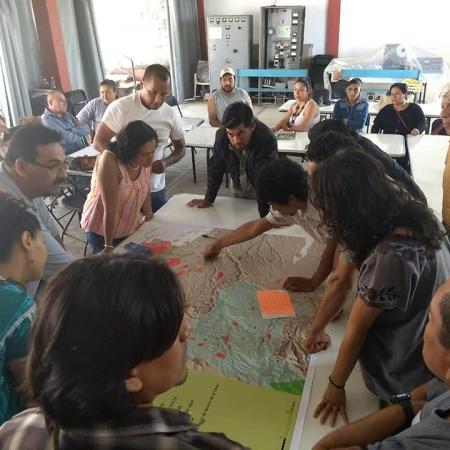
The Coalition of Organizations in the Bioregion Jamapa-Antigua (COBIJA for its acronym in Spanish) is an initiative formed by seven grassroots organizations (INANA, A.C., VIDA A.C., SENDAS A.C., Conecta Tierra A.C., ERA A.C., CORECAFECO A.C., Global Water Watch México) with extensive experience in community work and sustainable management of natural resources in the area of the Jamapa and Antigua watershed in the state of Veracruz . While all of them have decades of experience working with communities in the region, by joining in a coalition, these organizations have strengthened their own internal processes, reducing costs and operating times. Furthermore, they have found new friends and colleagues with whom they can work to solve common problems for a common cause: improving the well-being of communities along with the sustainability and adaptability of the local ways of life and ecosystems.
The trigger of the coalition was the joint struggle to attack a coffee rust problem (Hemileia vastatrix), a disease that can have catastrophic effects in coffee growing areas, including those from the Jamapa and Antigua watersheds. Through an integrated agroecological management, the disease could be controlled. The work from the people and for the people helped to maintain the coffee production and associated ecosystem services. This first example illustrates the potential of the coalition as a actor that can provide continuous support for adaptation in managing productive practices to conserve ecosystems and livelihoods.
COBIJA's work strategy with the communities has a watershed approach, combining territorial management, supporting local ways of life, and the conservation of resources and ecosystem services. Among their actions are, i) the organization of participatory workshops to build a management plan for the land use and land cover using the framework of the Comprehensive Watershed Management Plans (https://panorama.solutions/en/solution/dynamic-tool-integrated-land-use-and-water-management); ii) the running of learning communities about meliponiculture (a specific form of beekeeping) and coffee practices iii) the organization of barter markets, etc. COBIJA's permanent support has strengthened social and productive processes within local communities, increasing their adaptive capacity in the face of environmental and social changes.

